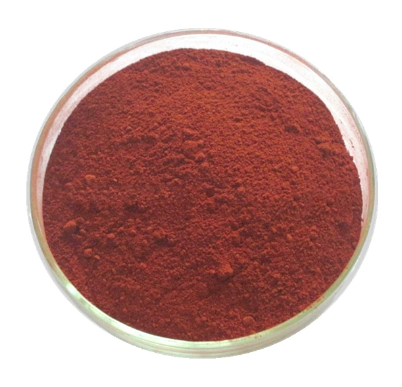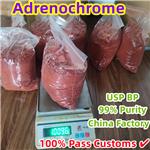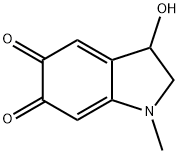Adrenochrome and hormone adrenaline
Mar 26,2024
Adrenochrome is a biomolecule produced in the body by oxidizing the hormone adrenaline—hence its name. The “chrome” in its name indicates that it is deeply colored, compared with white adrenaline. Epinephrine, a drug used to treat cardiac arrest and anaphylaxis, undergoes oxidation to produce adrenochrome through a ring-closure mechanism. A review of studies performed on injectable solutions of epinephrine suggests that temperature and pH have the greatest impact on stability.

In 1856, French physician Alfred Vulpian noted that epinephrine extracted from mammalian suprarenal glands eventually turned a reddish color when exposed to the air. The mechanism behind this phenomenon was deduced in 1937 by American biochemist David Ezra Green and English neuroscientist Derek Richter, who isolated the substance from oxidation into its pure crystalline form; they named the substance adrenochrome.
The structure of adrenochrome is chiral at the position of the hydroxyl group2. Little information is available on the individual enantiomers. Adrenochrome is an unstable molecule with no practical uses. However, its monosemicarbazone (carbazochrome3) is stable; it is said to promote blood clotting and can be used to treat hemorrhaging. From the 1950s through the 1970s, adrenochrome was thought to cause schizophrenia, but this theory was eventually debunked.
Adrenochrome, an oxidation product of adrenaline, is stabilized by binding to monosemicarbazone (adrenochrome monosemicarbazide). Its solubility is greatly enhanced by combination with sodium salicylate. The carbazochrome salicylate can be given either by intramuscular injection or orally. The solution for intramuscular injection is hypertonic, and patients usually experience a brief stinging pain at the site of injection. Experiments in animals have shown a significant reduction in normal bleeding time when adrenochrome monosemicarbazide is given. This has been attributed to a direct effect on capillaries, as increased capillary resistance has been observed in experimental animals.
- Related articles
- Related Qustion
Supplementation with pyridoxal 5'-phosphate monohydrate can synthesize neurotransmitters such as dopamine and serotonin, maintaining a healthy nervous system.....
Nov 4,2025Biochemical EngineeringBoth Pepto-Bismol and Tums have antacid effects, which help neutralize stomach acid.....
Mar 26,2024APIADRENOCHROME
54-06-8You may like
- Tinosorb S-Application in sunscreen
Jan 9, 2020
- ADRENOCHROME
-

- 2025-12-14
- CAS:54-06-8
- Min. Order:
- Purity: 0.99
- Supply Ability:
- Carbazochrome Sodium Sulfonate Impurity F(Adrenaline Impurity 61)
-

- $0.00 / 5mg
- 2025-11-19
- CAS:54-06-8
- Min. Order: 5mg
- Purity: 95%+
- Supply Ability: 1000mg
- Adrenochrome
-

- $100.00 / 1kg
- 2025-04-21
- CAS:54-06-8
- Min. Order: 1kg
- Purity: 99% Purity (What/sapp: +86 18145728414)
- Supply Ability: 1000 Tons/Month






